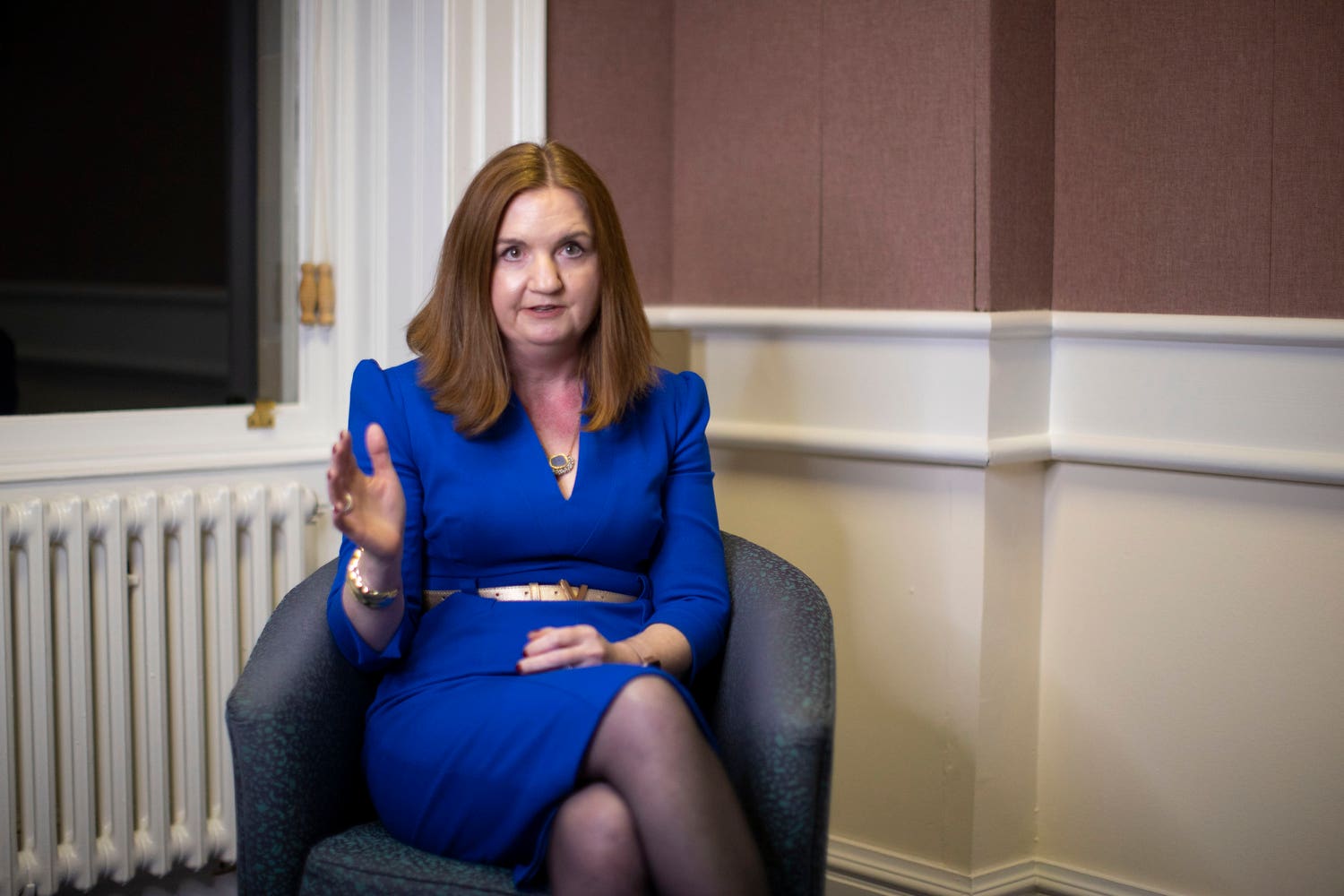Major financial decisions need Executive to return, civil service chief says
Jayne Brady said public officials heading up Government departments had been placed in a challenging position.

Your support helps us to tell the story
From reproductive rights to climate change to Big Tech, The Independent is on the ground when the story is developing. Whether it's investigating the financials of Elon Musk's pro-Trump PAC or producing our latest documentary, 'The A Word', which shines a light on the American women fighting for reproductive rights, we know how important it is to parse out the facts from the messaging.
At such a critical moment in US history, we need reporters on the ground. Your donation allows us to keep sending journalists to speak to both sides of the story.
The Independent is trusted by Americans across the entire political spectrum. And unlike many other quality news outlets, we choose not to lock Americans out of our reporting and analysis with paywalls. We believe quality journalism should be available to everyone, paid for by those who can afford it.
Your support makes all the difference.Many major financial decisions in Northern Ireland cannot be made by permanent secretaries and require an Executive, the head of the civil service has said.
Jayne Brady said some decisions would have to wait until Stormont returns, as she warned that public officials heading up Government departments were facing a “difficult situation”.
The Stormont institutions collapsed earlier this year when the DUP withdrew support as part of its protest against the post-Brexit Northern Ireland Protocol.
Civil servants are controlling government departments after ministers left office at the end of October when a deadline to restore the executive passed.
Last week Northern Ireland Secretary Chris Heaton-Harris set a budget for Stormont, stating that he needed to bring public finances in the region “under control”.
He said that some departments would need to make cuts and said the Government would also look at revenue-raising options, such as water charges.
Mr Heaton-Harris has also introduced a Bill which gives permanent secretaries greater decision-making powers, though Ms Brady said decisions would be made on a case-by-case basis.
Commenting on an overspend in public finances, she said: “The pressures identified were around £660 million. From the 28th October we worked with all permanent secretaries to see what easements could be made.
“That was reduced down to about £520 million.
“We worked then with the Northern Ireland Office officials to provide evidence and data in terms of where particular pressures were.
“Through that process the Secretary of State has now decided to deliver a budget which is £332 million in excess of our baseline from last year.
“Moving between that £520 million and the £332 million provides some really significant challenges and those are decisions which will require decision making which is standardly beyond what any official or permanent secretary could deliver.”
Ms Brady added: “The Secretary of State has also introduced legislation which will provide clarity in terms of the powers that civil servants will have to give effect to those decisions.
“Civil servants will step up and they will deliver in the best interest for public services but those will be very challenging decisions. We need to look at the guidance to see the framework that we can operate in.
Ultimately there will be many decisions which will require political decision making
“But ultimately there will be many decisions which will require political decision making.
“None of those decisions are easy. They will need to be done on a case-by-case basis, but there will be many decisions that will be beyond the remit of civil servants to take forward.
“Those decisions, if they are not within the remit, will have to wait until we have ministers in place and an Executive.
“At the moment there will be no ability for civil servants to bring forward new policies or strategies, a programme for government.
“We are in a period of keeping the system running, compounded by a requirement to make savings.
“But equally we won’t be moving and addressing those big systemic issues. That is why it is so important that we get the Executive up and running.”
She added: “Also the budget, bringing it down to a £332 million overspend. That will have implications for other years.
“We need to be really clear what that does for next year’s budget and understand those implications.
“It is a very difficult situation for permanent secretaries but it is also a very difficult situation for families, for businesses, for teachers, for nurses.”
Ms Brady said global pressures combined with having no executive had created an unprecedented financial crisis at Stormont.
She said: “Of that £520 million (overspend), £300 million of that is an allocation for public sector pay settlements, which is a nationally agreed and £205 million is related to public sector energy pressures.
“Those are genuinely inescapable pressures.
“Now if we had had an Executive and a budget we would have had the ability to come together and to look towards making prioritisation decisions, although they would be extremely difficult.
“There was also money in the centre which couldn’t be allocated because we didn’t have an Executive. There was £300 million. Ministers may have felt they could have potentially bid for that.
“It is a combination of having no Executive and having no ministers, no budget and then global pressures which caused unprecedented pressure.”